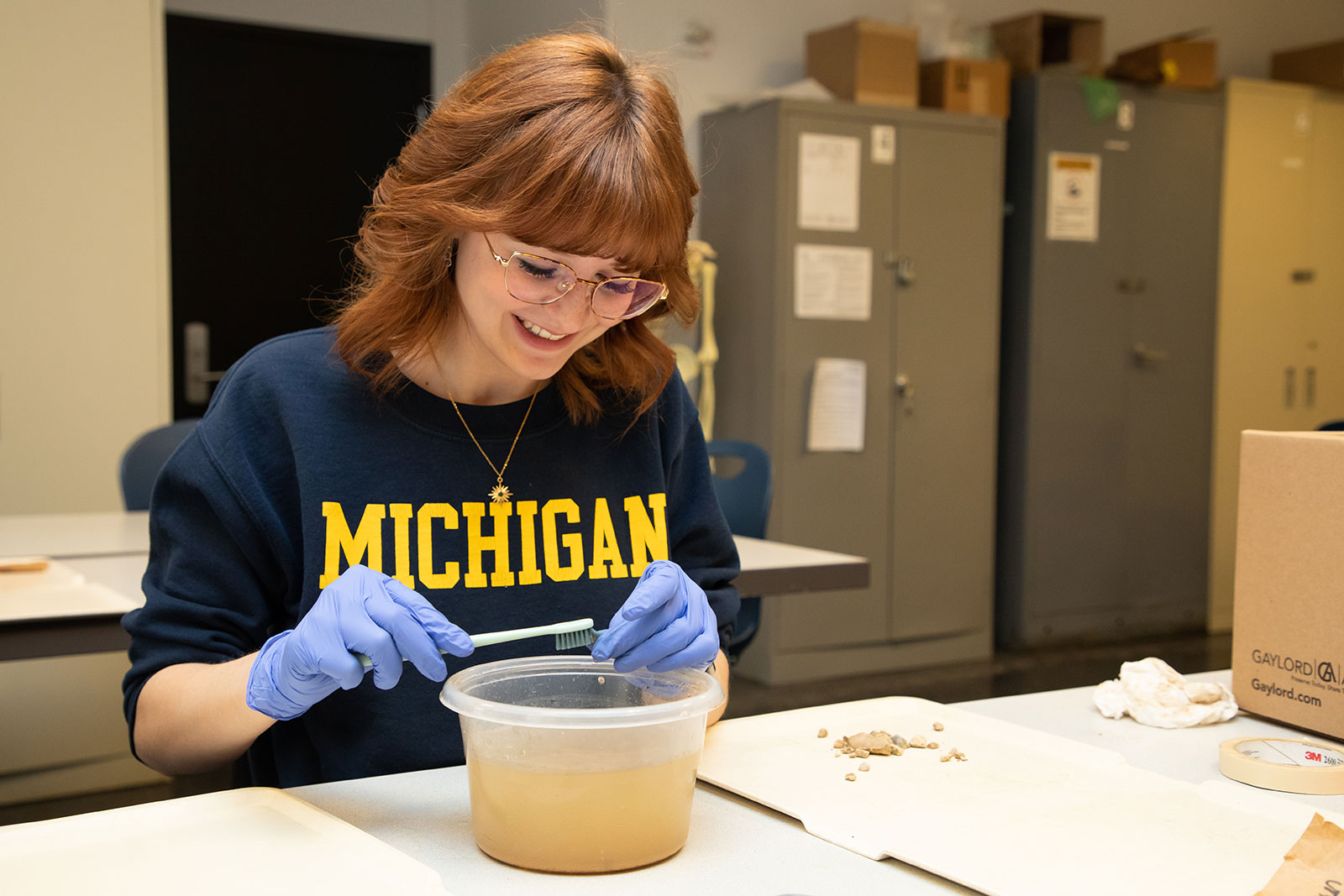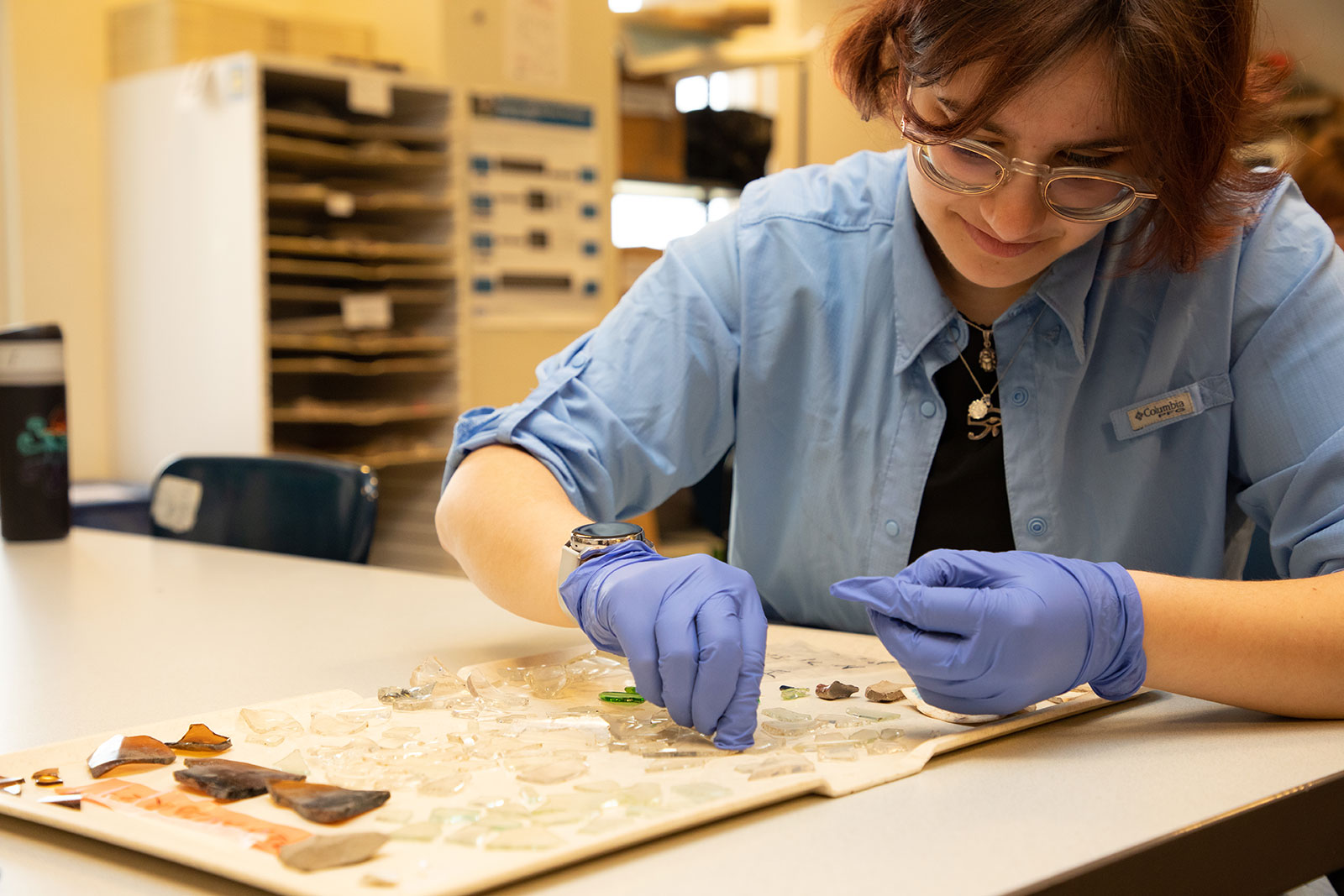Related Resources
Explore How Human Culture Works Over Space and Time
 Anthropology stands at the nexus of the sciences and humanities, integrating physical anthropology, archaeology, social and cultural anthropology, linguistic anthropology, and applied studies of human problems in an effort to explain both diversity and similarity in human behavior around the world.
Anthropology stands at the nexus of the sciences and humanities, integrating physical anthropology, archaeology, social and cultural anthropology, linguistic anthropology, and applied studies of human problems in an effort to explain both diversity and similarity in human behavior around the world.
As an anthropology major at the University of Michigan-Dearborn, you’ll explore human biology, culture, religion, race, gender, communication, language, and the critical evaluation of one’s own culture in the context of a globalized world. You’ll explore many theories, but you’ll also gain skills necessary in the workplace involving communication, cultural awareness, teamwork, problem solving, planning and organizing, and qualitative and quantitative analysis.
Where an Anthropology Degree Will Take You
The knowledge and skills you’ll develop as an anthropology major open doors in many fields, including law, medicine, public health, education, social work, criminal justice, international development, social justice, communications, management, and nonprofit work. They also are excellent preparation for graduate work in anthropology, museum studies, and other social science fields.

